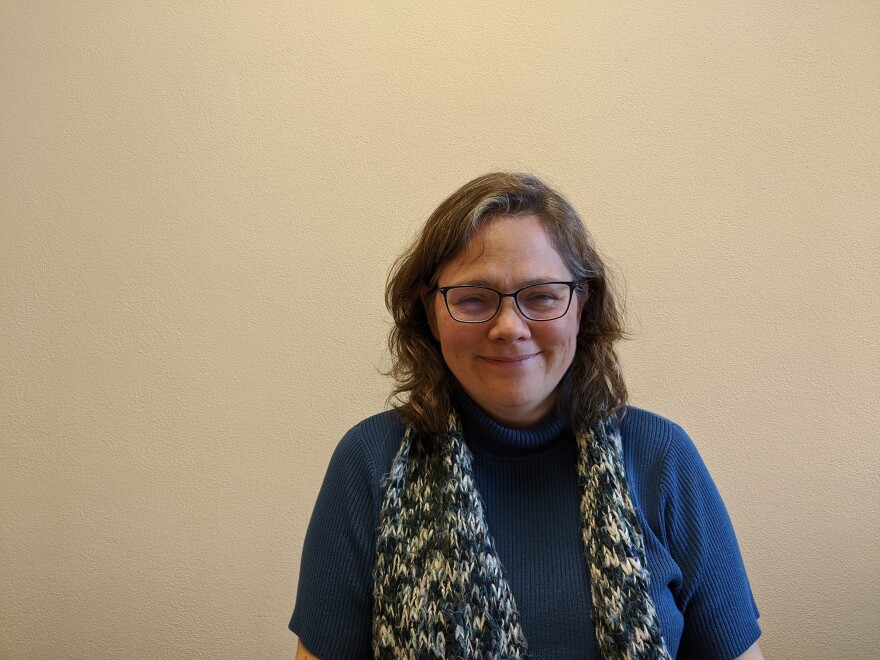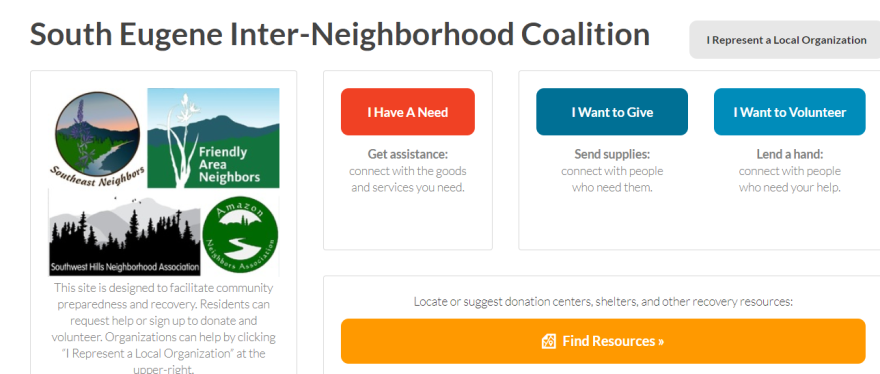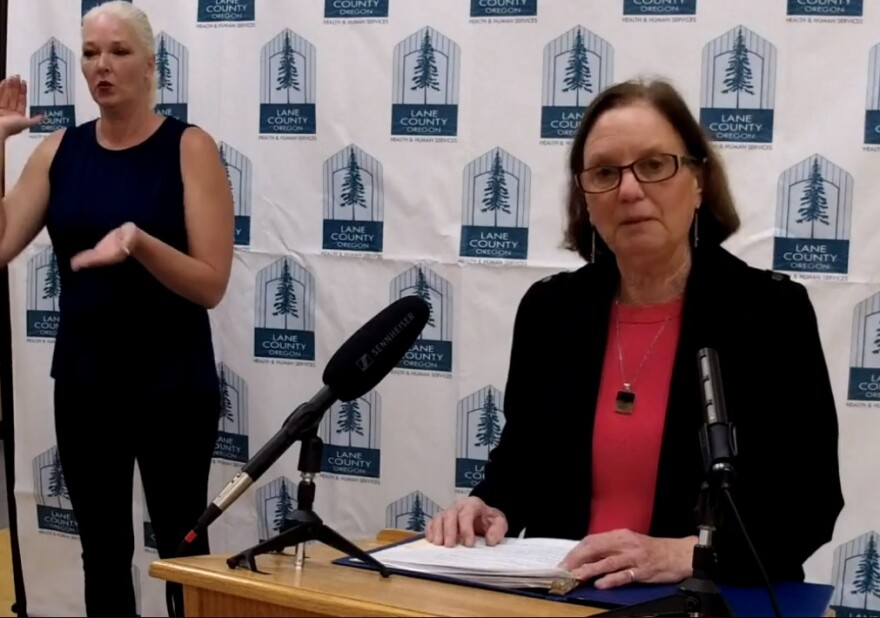The Covid-19 pandemic has affected nearly everyone in the world. Here in Oregon, people have already been preparing for a disaster to varying degrees for years. KLCC’s Rachael McDonald reports on what we’re learning now that might help in the next crisis.
For this series on Resilience and Oregon’s Natural Resources, funded by the Wayne Morse Center for Law and Politics, we’ve been looking at the safety of our water supply, climate change, and the looming threat of a Cascadia Subduction Zone earthquake. As reported a few years ago in the New Yorker, that event could wipe out portions of the Oregon and Washington coast, and plunge the region into a state of emergency beyond anything we’ve ever experienced.
Now, we’re actually in a disaster response due to COVID-19. I checked in with Lane County’s Emergency Manager Patence Winningham
“I’ve been thinking about snowmaggeden.”
I've learned a lot about how resilient we actually are. People are thinking out of the box. They're working together as a community.
Last February, the region was hit with a massive snowstorm.
“How it tested our community in Lane County. It impacted infrastructure. So, if you remember we had a lot of power outages, transportation routes were compromised.”

Some residents were without electricity for weeks after the snowstorm. Others were only affected for a few days. The pandemic is a longer slog, but our infrastructure is not what’s most affected.
“A year later, we’re testing the other piece – economic impact, recovery, impacts on our health care system, supply chain management. So all things that weren’t necessarily that big of a lift in snowmaggeden now we’re looking at the other side of the spectrum.”
Winningham says this can prepare us for a Cascadia event in which we would be challenged on all those fronts: infrastructure, transportation, electricity, health care, economy. Winningham says she’s proud of Lane County and its residents for how they’ve stepped up.
“I’ve learned a lot on how resilient we actually are. People are thinking out of the box. They’re working together as a community.”
Winningham points to how people have made masks and ramped up food delivery for people in need.
She says while the federal government can provide money for relief efforts, it’s up to state and local leaders to take charge.
That’s been happening on the neighborhood level. I revisited David Monk, who we talked with last December about how his southeast Eugene neighborhood association has been working on disaster preparedness. The COVID-19 pandemic kicked them into gear. They set up a webpage for people to connect for help with grocery shopping, dog walking, distributing masks.

“That’s a big part of our effort is responding to the immediate needs from folks around the pandemic and their need for staying home and staying healthy to ideally recruit new volunteers to work with us and expand the program to the neighborhood.”
Pre-pandemic, their disaster preparedness work included mapping the neighborhood to know who lives where, who has special skills, who might be vulnerable. They used that information in this real life event. Monk says there’s more to do especially to get the word out to more neighbors and higher participation.
Eugene Mayor Lucy Vinis says the pandemic also forced the city to act on projects already underway-- to help vulnerable people who don’t have homes to shelter in.
“So, things like setting up sanitation facilities. Creating outreach teams, creating emergency shelter options. We were able to roll those out fairly quickly and of course if we had an earthquake we’d have to do it even faster.”
Vinis describes the pandemic as a slow-moving tsunami:
“Where we knew it was going to hit us but we didn’t know how forceful it was going to be, how high the wave would be and so we actually had time to anticipate it.”
She says they were able to set up an emergency operations center early on before covid-19 cases peaked.
“In a Cascadia event, in an earthquake, we’d have to do that immediately. So, I think the lessons learned here are incredibly valuable for okay, what are the shortcuts you would take in order to get this up in a matter of hours rather than a matter of days? What are the first things you would do?”
But Vinis says the next step, recovery, is going to be a long haul.

“So our capacity now to work out how you take an economy that has been so profoundly disrupted and take people’s lives that have been so destabilized, how do you gradually get everybody back on their feet? So we will learn a lot in this COVID recovery that will help us in the recovery after an earthquake.”
Patence Winningham is also helping with Lane County’s recovery plan. But, closer at hand, she’s preparing for this summer’s wildfire season.
”What does it look like for first responders and wildfire, and PPE allocation? For N95s? How do you set up fire camps and have all these people in close distance work together to put out a fire? So we’ve got a lot of work to do in adjusting this new model of doing business.”
In the next piece in our series on Oregon’s Natural Resources and Resilience, KLCC’s Brian Bull will look at wildfire preparedness in a time of Covid-19.
Copyright 2020 KLCC.








